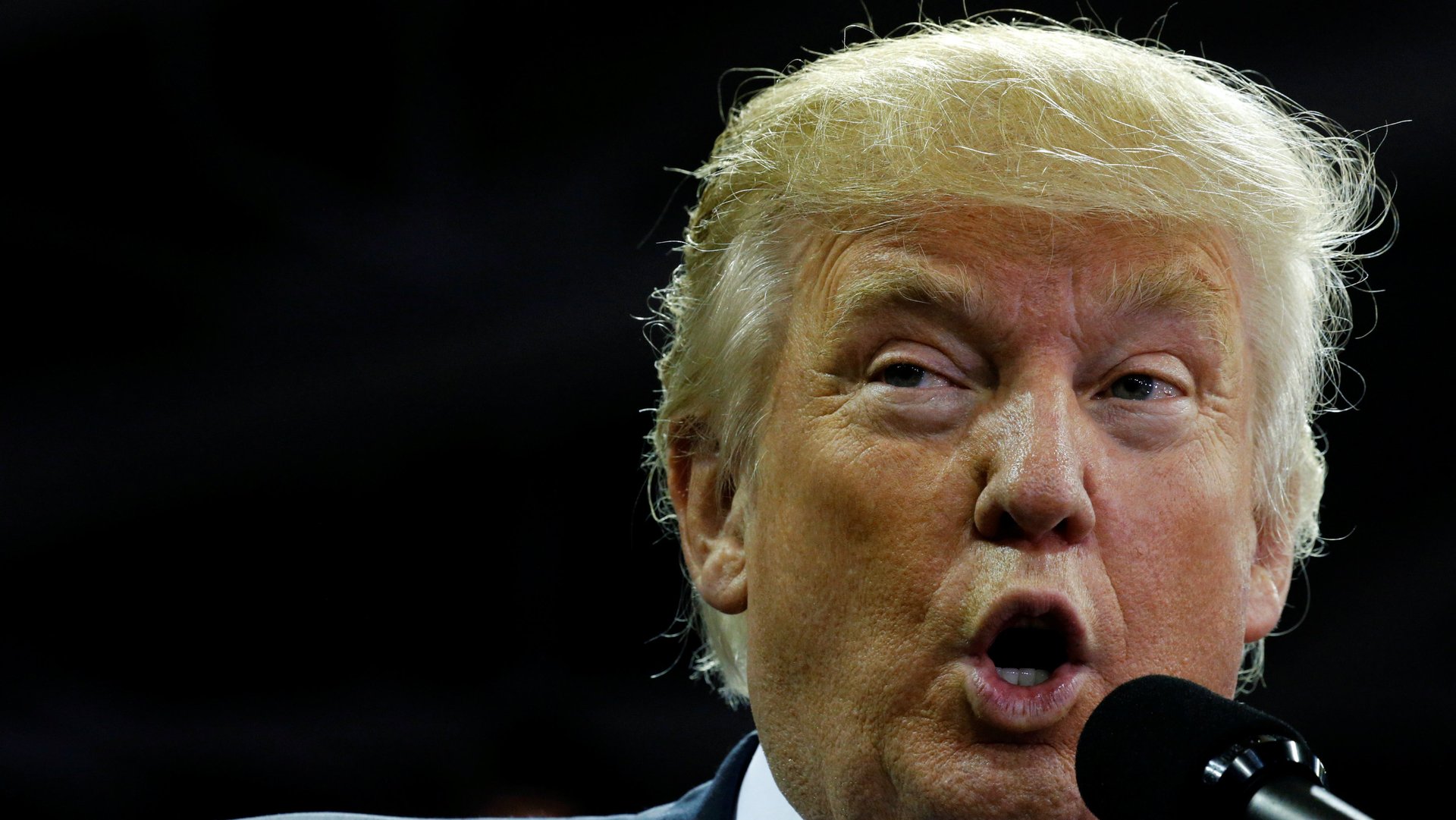The neuroscience behind why people keep believing Trump’s most egregious lies
Donald Trump’s genius for lying approaches pathological. Witness his latest deceit—when he was finally compelled to correct his most infamous mega-fib, that president Barack Obama was born outside the US (and therefore can’t legally be president). What really happened was that Trump replaced the original “birther” lie with a couple of fat, shiny new ones:


Donald Trump’s genius for lying approaches pathological. Witness his latest deceit—when he was finally compelled to correct his most infamous mega-fib, that president Barack Obama was born outside the US (and therefore can’t legally be president). What really happened was that Trump replaced the original “birther” lie with a couple of fat, shiny new ones:
- “Hillary Clinton and her campaign of 2008 started the birther controversy.” (Trump must have known he was lying when he said this, given this charge has been debunked six ways to Sunday.)
- “I finished it. I finished it—you know what I mean.” (Not really. Was he referring to the statement he was about to make, or his previous claims that he sent investigators to Hawaii in 2011? Either way, Trump lied: Hawaii’s state government proved Obama’s birth status in 2008, and there’s no proof he sent anyone to Hawaii.)
The New York Times is now mounting a full-on Trump lie patrol. Unfortunately, it probably won’t matter. Trump has mastered the human brain in a way that the media can’t even hope to—and there’s a bucket-load of science to prove it.
One thing Trump exploits masterfully is “source amnesia,” as Sam Wang, a neuroscience professor at Princeton University and Sandra Aamodt, a neuroscientist and author, explained in this 2008 article. When we first encounter a new piece of information, it’s stored in the hippocampus, and every time we recall it, our brain rewrites the info a little more permanently. After a while, this info is shifted to our brain’s long-term storage facility, the cerebral cortex. But the source of the information—or the context in which we learned it—doesn’t usually come along with that move. This is why you probably can’t remember how exactly you learned that Neptune is the eighth planet from the sun, or who first told you that China’s capital is Beijing.
You also probably can’t recall how you know that the forbidden fruit in the Bible is an apple, or that ninjas are sneaky, black-clad assassins.
Neither of those two “facts” are necessarily true—and that’s the problem with source amnesia. If a false statement—or a “fact” of dodgy origin, or something offered with a disclaimer—is recalled enough, the misinformation gets stored without the accompanying caveats. Then the more it’s recalled, the more”true” it becomes.
Trump’s media reach and his frequent repetition of the birther lie—which went on at least until 2014—unquestionably contributed to the fact that more than a third of the American electorate believe Obama was born outside the US, from a poll taken in mid-September:
Another cognitive quirk probably explains why Democrats are far likelier than Republicans to believe Obama was born in the US. Our brains aren’t objective information gathering machines; they are filters that sort and prioritize information based on how it fits with our moral worldview. News that accords with what we already think stays. Anything that challenges it gets deleted.
Republicans are far more likely to object to Obama’s policies and, therefore, are more willing to believe information that validates their contempt for the president’s authority. They’re also, on average, much likelier to believe that blacks are lazier, more violent, and more criminal than whites, suggesting a more general bias against blacks, as Quartz recently explored.
“Trump is just one of millions of birthers with a prior disposition to be skeptical of a black man becoming President,” writes Wang in a Princeton Election Consortium blogpost published Sept. 20.
The lessons from the long, disgraceful life of the Obama “birther” slur are bleak ones. This is why those calling for fact-checking armadas to battle Trump lies during the debates will probably be disappointed in the results. As Wang and Aamodt wrote in 2008, “by repeating a false rumor, they may inadvertently make it stronger.”